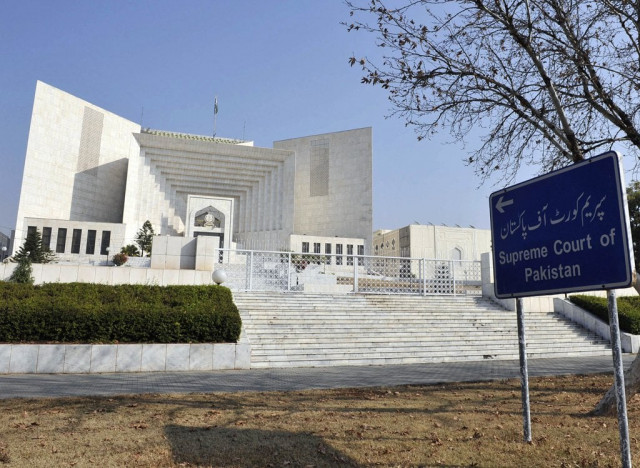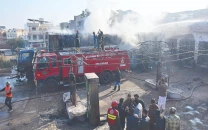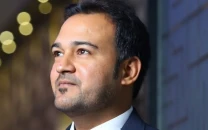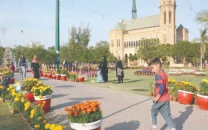SC will not interfere in high court matters, says CJP
Top judge says case was under trial in a high court and apex court could not order until proceedings were underway

Supreme Court of Pakistan.PHOTO: AFP/FILE
The CJP made the remarks on Thursday, while heading a three-member bench hearing a petition filed by Waris Masih.
The counsel for the petitioner in his arguments demanded the Supreme Court to order the high court for granting extension in the time for payment of guarantee money.
The CJP remarked that the Supreme Court in its 70-year of history had never interfered in the matter of high court, however it may consider in the event of extreme injustice at the hands of lower court.
The top judge further said that the case was under trial in a high court and the Supreme Court could not order until the proceedings were underway, adding that the high court had extended the period for the payment thrice but the payment was not made.
Later, the apex court disposed of Waris Masih’s petition against the decision of the high court for the recovery of Rs1.5 million and ordered the petitioner to pay the amount in full.
Meanwhile, Supreme Court on Thursday acquitted a suspect booked in suicide bombing case over lack of evidence.
Suspect, Nadeem Hussain, was earlier awarded life imprisonment before being released by the apex court over benefit of doubt.
A three-member bench led by Chief Justice Asif Saeed heared the case.
The CJP maintained it was disappointing that the subordinate courts did not address different aspects of the case.
“The suspect was only convicted because the bomb blast was a terrible tragedy. The high court is a major court but it also ignored the substance of the evidence.”
Suspect’s counsel Ayesha Tasneem told the court that two suicide bomb attacks were carried outside Pakistan Naval War College Lahore in 2008 in which, three people were killed and 18 injured.
The counsel said that Hussain was arrested over the accusation that he had his shop near the crime scene.
“The accusation that he possessed explosives in his shop was not confirmed by any evidence presented in the court,” she said.
“You do not have any substantial evidence against the accused,” the CJP remarked, adding that the “veracity of the assumption that the suicide bombers were supplied jackets from the shop could not be established”.
The CJP said it appeared as if the suspect was wrongfully dragged into the case, while his name was not even present in the FIR.
The trial court had awarded life imprisonment to suspect Nadeem Hussain, which the high court maintained.
The suspect had later challenged the high court verdict at the apex court.



















COMMENTS
Comments are moderated and generally will be posted if they are on-topic and not abusive.
For more information, please see our Comments FAQ